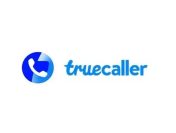A big wave is taking over the UAE, and if you’re not riding it, you will soon be out of the game. The year 2018, touted to be a turning point for the out of home (OOH) industry, has not disappointed so far. In fact, the challenging market conditions in the UAE market, reflected in the 31.6 percent drop in 2018 vs. 2017 in the UAE outdoor expenditures forecasted by Zenith Optimedia, call for a new model. This need, to be reinvented, leaves a plethora of opportunities for the media industry.
Advertisers are now cautious with their media budgets and are urged to make the most out of every penny spent. As a result, media owners need to present a real value proposition with tangible results. More simply put – the need of the hour is smart advertising. At JCDecaux, we believe audience should be the main driver behind every advertising investment decision: who are you trying to reach? What do you want to say about your brand or your products?
There is no doubt that digital is disrupting the OOH industry. It’s the main driver behind OOH resilience and attractiveness. But digital out-of-home is not about buying screens, it’s about buying a specific audience, your audience.
Digital audience-driven strategy is the key to unlock advertising potential and to create advertising that is targeted, relevant and smart. How do we achieve it? By offering dynamic content solutions.
Dynamic content solutions provide smart content that delivers the right message to the right audience at the right time. On JCDecaux’s digital screens located in Tecom business parks, Red Bull experienced Dynamic Content Solutions by playing different artworks at different times of the day.
Redbull campaign on JCDecaux screens in Tecom Business Parks
Through dynamic content solutions, the advertising message becomes contextualized and dynamic, thus more engaging for the audience. And we know it works: we observed a 12 percent increase in prompted recognition and 53 percent in terms of message recall (Posterscope, 2015). At global level, JCDecaux is already using this proven solution. Car manufacturers have linked their creative to the weather feeds to promote special features in their cars on smart bus shelters. Food chains have linked their messages to the time of day to reach their hungry audience on digital screens. And TV channels have made use of social media and featured their Twitter feeds.
Smarter use of digital media is now pushing for more data. A data ecosystem should be built as a comprehensive platform where all stakeholders could bring insights.
In a bid to drive the OOH home advertising disruption towards this direction, in December 2017, JCDecaux, Dubai Airports and Dubai Duty Free (DDF) forged a partnership. It created the, first of its kind worldwide, data driven offer ‘Drive to Store’. This new offer, integrating JCDecaux with some DDF screens at Dubai International, will be based on a robust data ecosystem fueled by Dubai Airports, DDF and JCDecaux.
By cross-analyzing flight information, audience profile, passenger mindset data, boarding pass and travel retail data, we now have an enriched data ecosystem that we can use to offer smarter campaigns to our clients. For instance, target specific nationalities with language based advertising, target specific destinations, change artworks based on top sales categories and so on. It’s the first time such an agreement is being signed by an advertising operator, airport authorities and a travel retail operator. We believe it will transform the media industry considerably.
As media value proposition, JCDecaux is offering brands the full coverage of the passenger journey from the minute passengers set foot at the airport until they board their plane. Dynamic content solutions based on this data ecosystem allow contextualized and customized advertising based on clients’ needs to be more efficient and effective in targeting passengers before and at point of sales by creating emotional trigger to act upon advertising messages and boost sales.
We know 83 percent of the airport audience is open to influence in the brands they buy, and 34 percent do not have any specific brand and make up their mind once in the store, as per Global Shoppers study 2016.
Therefore, the need for contextualized and relevant messages for the appropriate audience before and at point of sales is key to drive passengers to stores. For example: 52 percent of airport passengers appreciate advertising in their own language, especially the Chinese (81 percent) and the Middle Eastern audience (KSA: 77 percent, UAE: 74 percent). Mall of the Emirates adapted the language artworks based on flight origin: if a flight is coming from China, the language will be based on Chinese etc..
So, what is our objective here at JCDecaux? It’s to steer this data driven disruption and promote dynamic content solutions by working hand in hand with brands and partners in achieving the desired results by reaching your target audience and creating a memorable and relevant experience for them.




